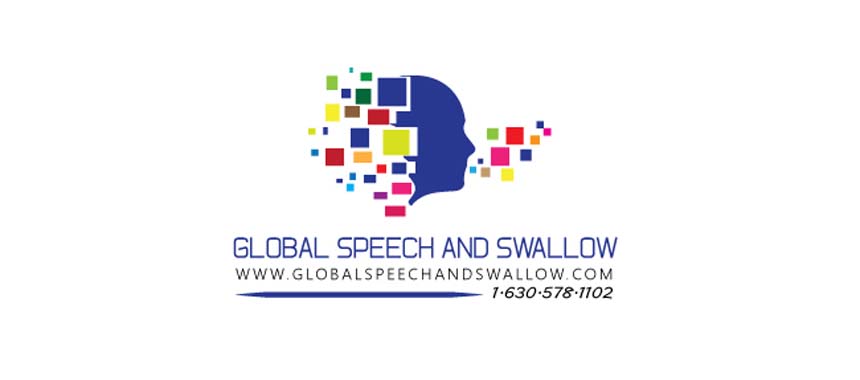We’re continuing with our affiliate highlight series, this time turning our eye to Global Speech and Swallow in greater Chicago, Illinois.
What Makes Global Speech and Swallow Unique?
Our practice serves a wide variety of patient populations. Our clinicians have decades of training and experience working with patients with aphasia in large academic stroke-certified medical centers, in the acute phase, during the inpatient rehabilitation process, and in outpatient, day-rehab, and long-term/extended care settings.
We pride ourselves on providing evidence-based, results-driven treatment that is customized to maintain the goals/needs of the patient/family/caregiver at the forefront of our treatment plan. We specialize in being able to perform evaluations and treatment with patient populations that are linguistically and culturally diverse. We proudly offer services for patients with aphasia/apraxia/dysarthria and other cognitive-communicative challenges in English, Spanish, Hindi, Punjabi, and Urdu.
Great Success Stories
Any time I am able to make even a little bit of difference in helping a patient communicate with his/her family/friends/community, I feel as though I have succeeded. One of the best success stories during my practice has been when I worked with a young physician who was only 36 years old when she suffered a stroke that resulted in aphasia with an apraxia component.
During her initial days post stroke, in order to get my patient to produce any speech, I utilized rhythm and a variety of visual, tactile, and auditory cues to get her to produce first, familiar phrases/songs, and then, using those same methods, her daughters’ names.
At that moment, I felt as though I had restored even a slight glimmer of hope for my patient and her family, and to me, that was priceless. It was a long road ahead of hard work, with many ups and downs during the rehabilitation process. However, with consistent, evidence-based treatment practices, the patient’s continued tenacity, consistent completion of carryover activities for home practice, and with maintaining functional/practical goals in mind, this patient was able to once again communicate independently with her family and friends and successfully return to practicing medicine, allowing her to help her own patients and their families.

They Love What They Do
What I like most about my work as a board-certified speech-language pathologist (SLP) is being able to serve a wide variety of culturally and linguistically diverse people develop and/or restore their cognitive-communication/feeding-swallowing function. Communication and swallowing are two of the most vital aspects of one’s being that greatly impact one’s quality of life. Being able to help regain these aspects in order to restore functionality and quality in one’s life is what makes the work I do so special to me.
I was introduced to the field of medical speech-language pathology during the summer of my senior year in high school when my paternal grandmother, who was visiting us, suffered a stroke, resulting in aphasia. Although she could understand and speak a limited amount of English prior to her stroke, after her stroke, it was most appropriate for her speech and language deficits to be treated in Hindi and/or Punjabi, her more native/preferred languages.
As there were no board-certified speech-language pathologists that were able to evaluate or treat her in Hindi and/or Punjabi at that time, despite looking searching in many different areas of the U.S., my family and I ended up serving as ‘translators’ between the SLP and my grandmother. Without the science and knowledge behind what the SLP was looking for in my grandmother’s responses and what she was trying to re-train, it was less than ideal, but we made the best out of the situation with the circumstances given to us.
It was at that time that I decided that I would pursue a career in speech-language pathology, and with the additional skills of proficiency in Spanish, Hindi, Punjabi, and Urdu, in addition to English, my goal was to be able to help a wider variety of people with speech-language/cognitive-communicative/feeding-swallowing challenges. I feel fortunate that I have been able to meet those goals that I set out to do so long ago, of helping a wide variety of linguistically and culturally diverse patients help regain functionality and quality of life. In doing so, I am able to say I love what I do for work on a daily basis, despite how challenging it may be at times.
Services and Support Groups
We offer speech, language, cognitive-communicative, feeding, and swallowing evaluation for infants, children, and adults. We specialize in being able to provide services in English, Spanish, Hindi, Punjabi, and Urdu. We also offer services via Telepractice (via video conferencing platforms). We are in the process of establishing a support group for adults with aphasia and other cognitive-communicative challenges post stroke or brain injury.
Special Services for Caregivers
As we maintain the patient/family/caregiver’s goals/needs at the forefront when establishing a treatment plan, we always take the input of the family/caregiver to determine what areas of focus need the most attention, in order to achieve the best outcomes in the patient/family/caregiver’s ‘real life’ at home/in the community, outside of the therapy room.
Also, we are proud to be able to communicate and explain assessment and treatment processes, as well as describe progress and assigned carryover activities in the caregiver’s native/preferred language of English, Spanish, Hindi, Punjabi, or Urdu, help to bridge a potential gap that may be a potential gap in a patient being able to reach his/her fullest potential with the added support and execution of therapeutic approaches by his/her family/caregiver at home.
More Information
We offer services in person and online. Hospital and school consults available.
Do you live in the Chicago, Illinois area? Contact the Global Speech and Swallow for speech services and support groups.
We’re spending 2018 highlighting our affiliates in order to make it easier for caregivers to find services for their loved ones.



